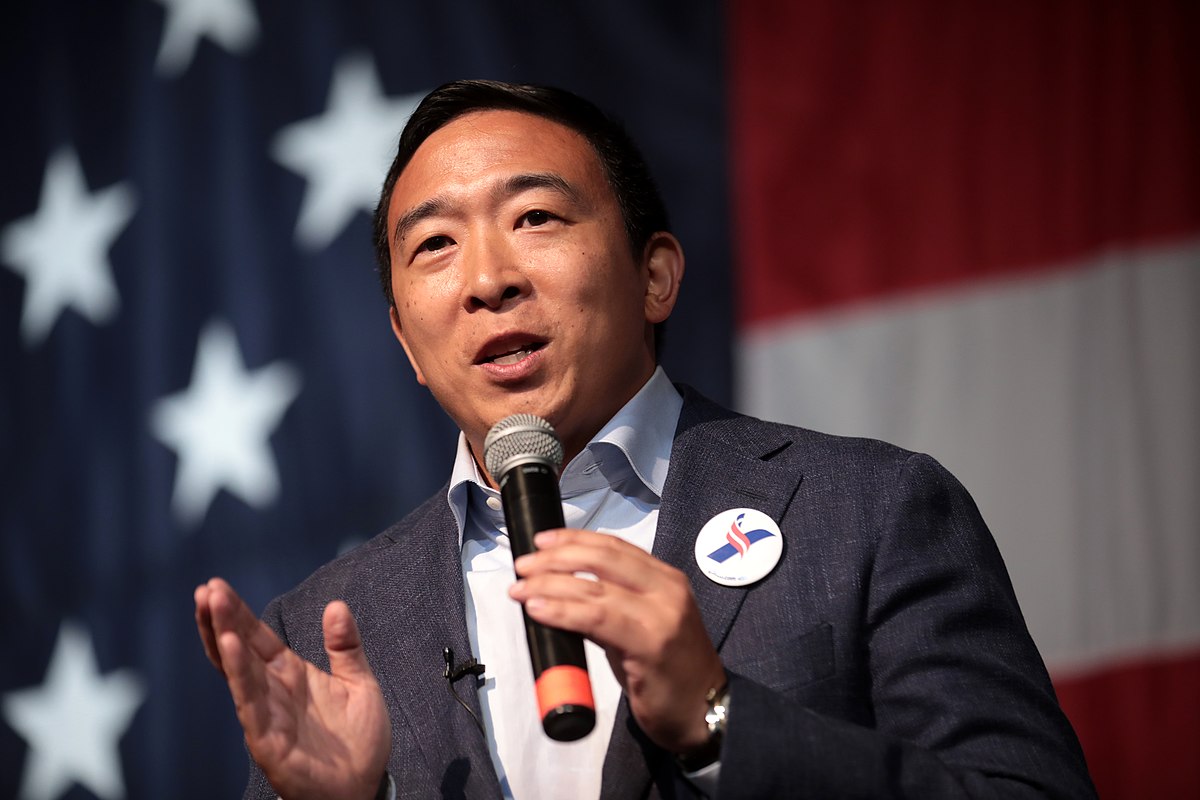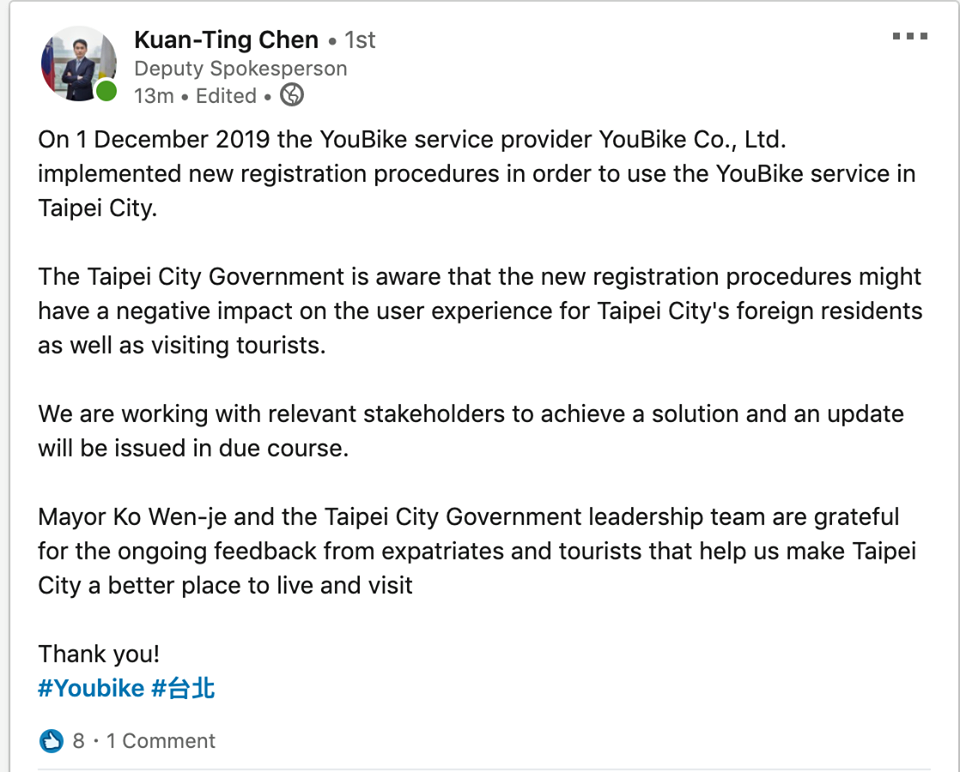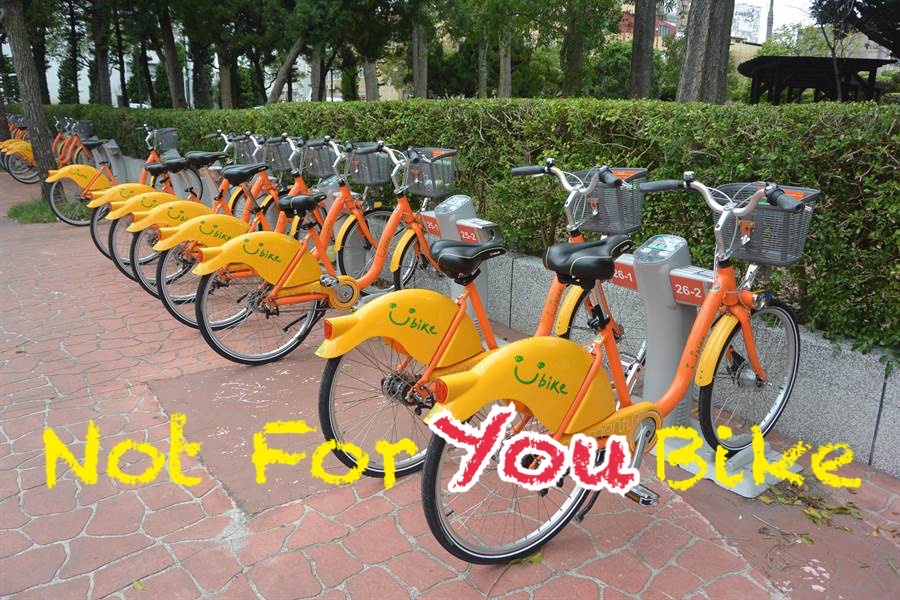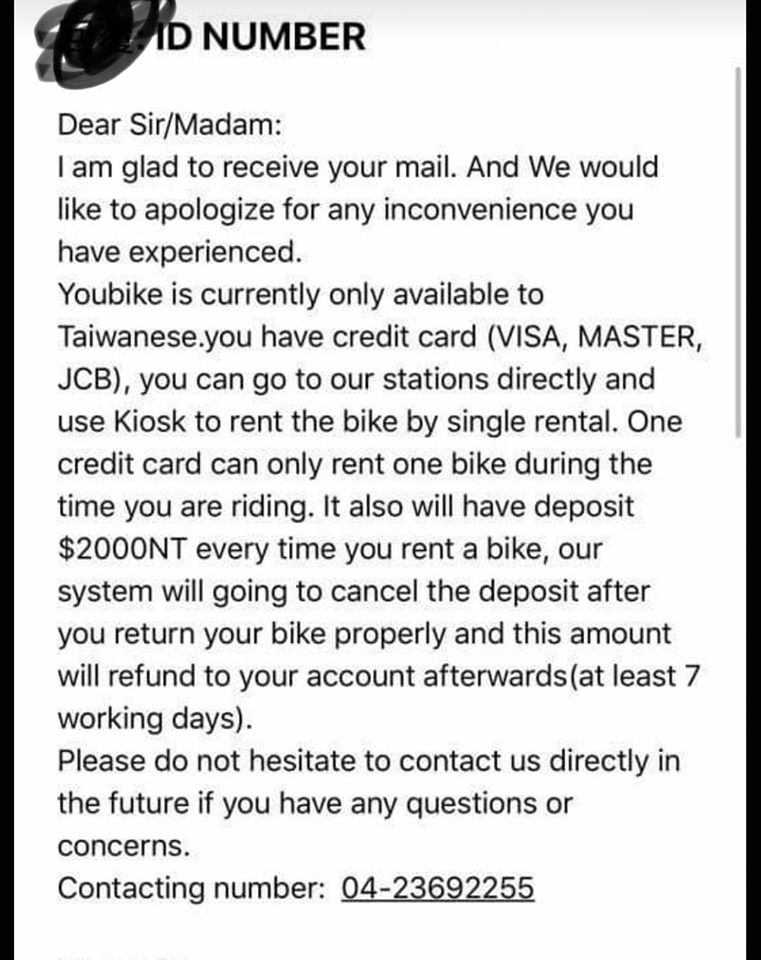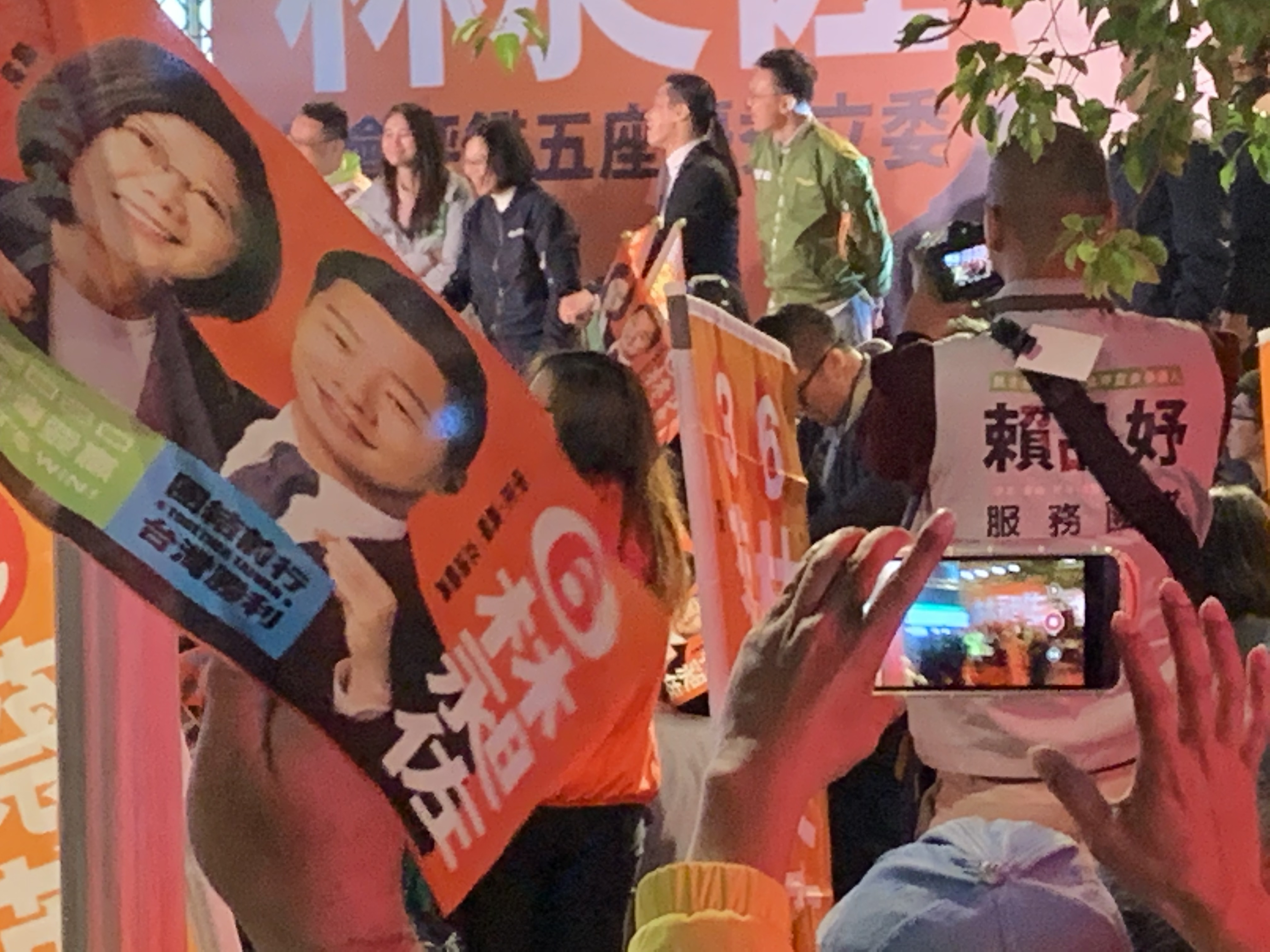 |
| Tsai, Freddy Lim and Lin Fei-fan - and I think that's Lai Pin-yu |
Update: now with photos!
I really admire people who have the stomach to attend rallies for the bad guys - I just can’t do it. As in, it directly affects my mental health and I stay away for my own well-being. Considering this, while everyone was reporting on the big Han rally last night, I went over to Freddy Lim’s rally outside Longshan Temple.
 |
| Lin Fei-fan takes the stage |
First, I urge people not to compare these two rallies. Han’s big rally - which absolutely didn’t reach 700,000 people as they claim - was for a presidential candidate who organized attendees from all over the country (that’s not necessarily wrong, it’s just that it’s a national audience - though it’s worth noting that it seems to be the same people bussed everywhere). Lim is a legislative candidate, not a presidential one, and this was a local rally with local flavor.
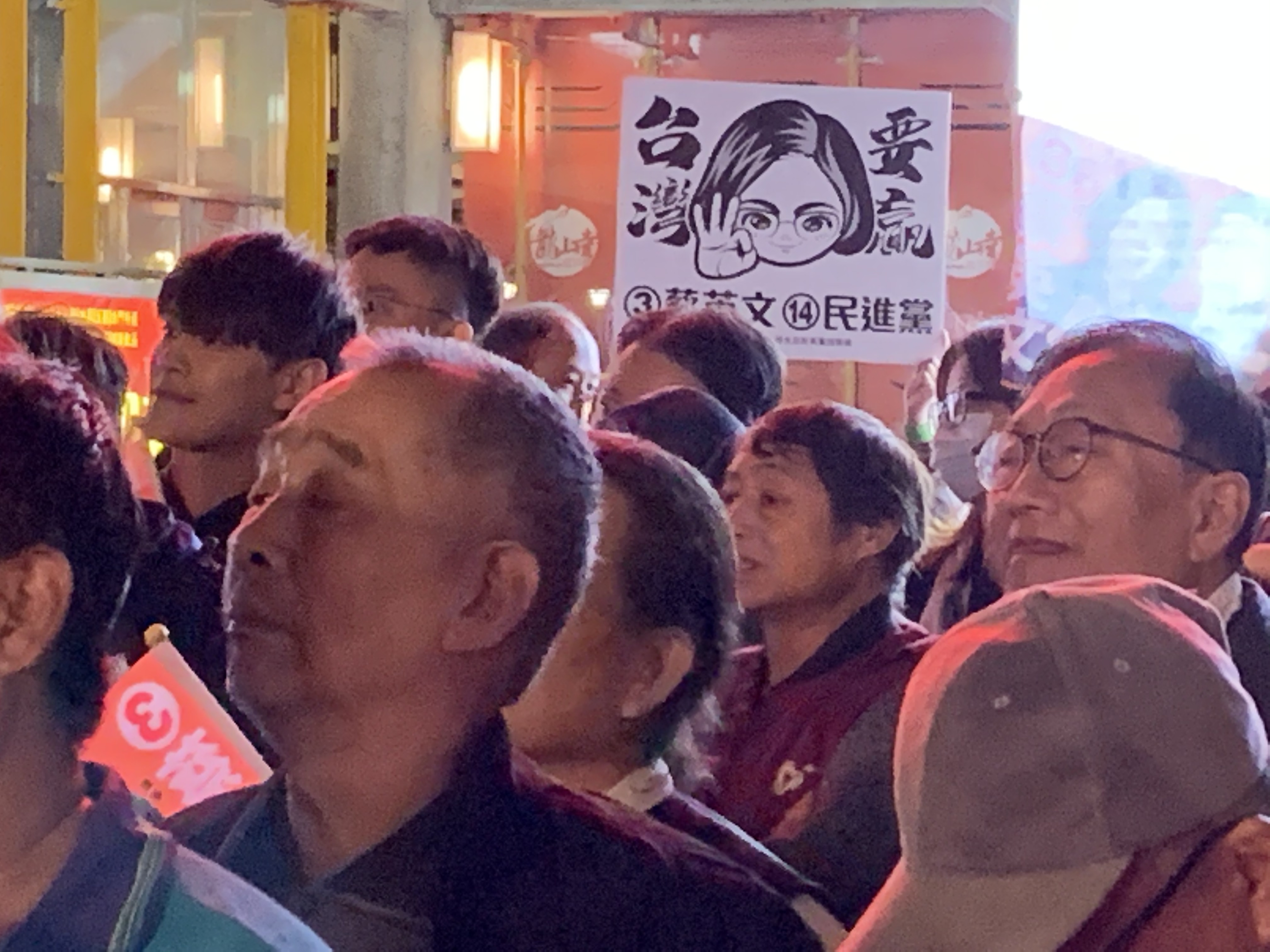 |
| A cute sign for Tsai |
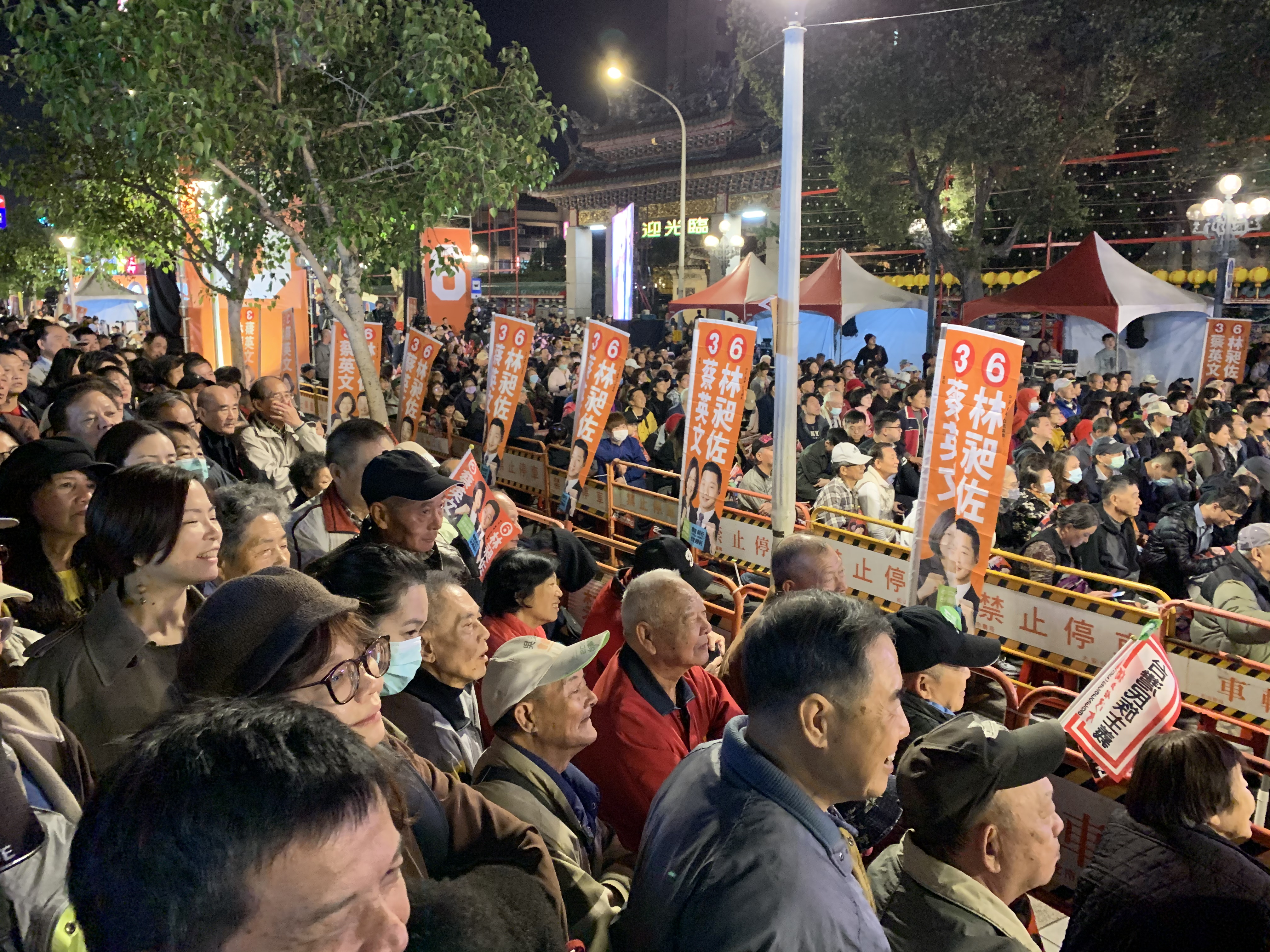 |
| The turnout was solid |
In fact, if you compare Freddy’s rally a few weeks ago on the same Ketagalan Boulevard site as Han’s, you’ll note that a (mere) legislative candidate was able to fill the entire boulevard. A presidential candidate did that, and filled most (but not all) of the Jingfu Gate circle - if you look at pictures, there was still space to move around. That’s actually impressive...for Freddy. For Han, this turnout is good - at least it’s not embarrassing - but it actually compares poorly against Lim and Han’s own previous rallies.
How do I know it wasn’t 700,000? The Sunflowers claimed 500,000 - I’m not sure about that number, but whatever - and you couldn’t even approach Jingfu Gate. We were stuck way back by the National Concert Hall.
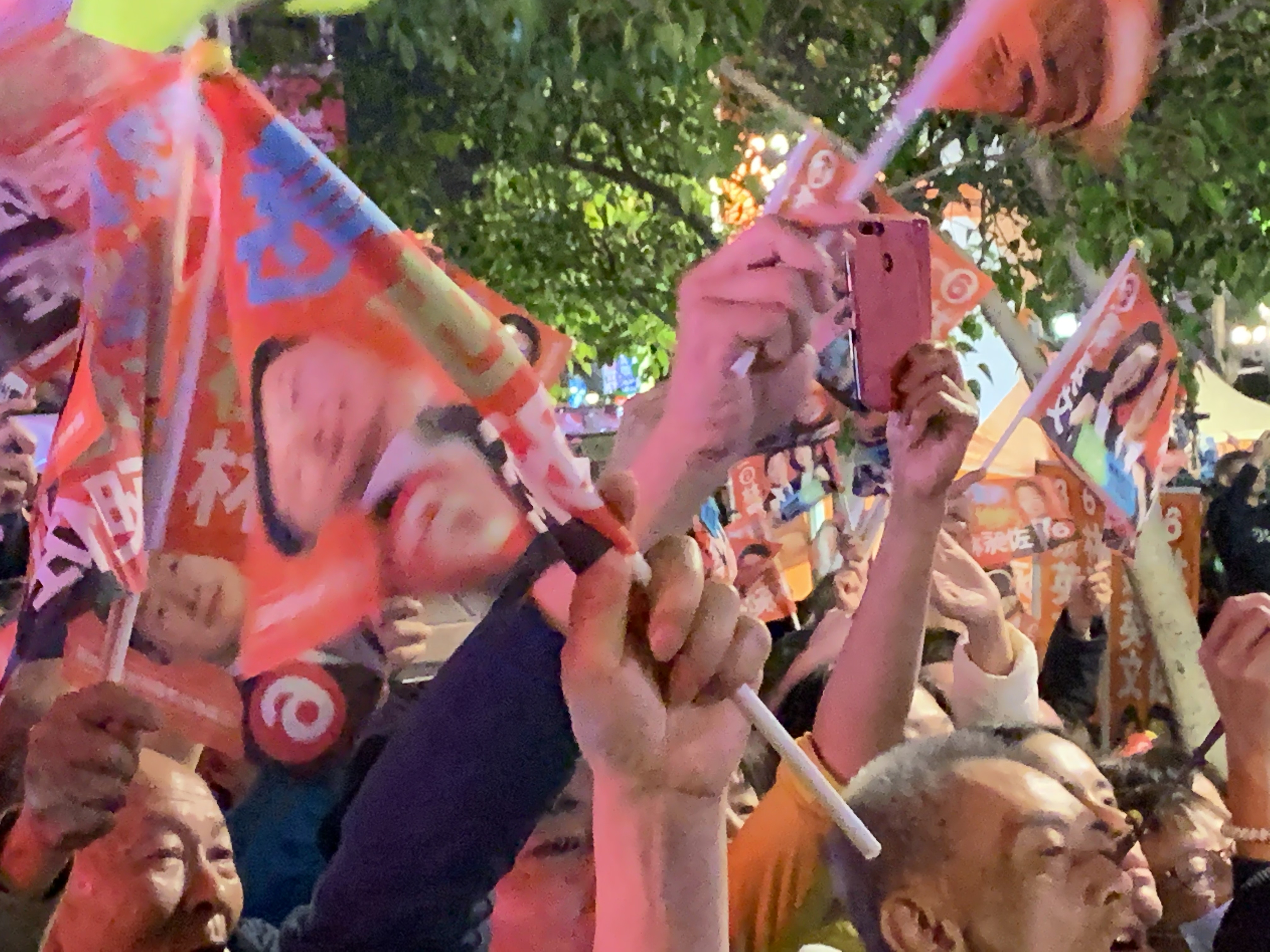 |
| And people seemed genuinely excited for Tsai and Lim |
In any case, I headed to Freddy’s rally. As I got off the MRT, I grabbed my Freddy flag - you’re not supposed to wave those on the MRT as political campaigning is banned there, but it was in the way of my keys and metro card - and asked a bunch of Han supporters in front of the door to please let me off the train. Two women carrying ROC/Han flags quite deliberately not only did not move (although there was space, or they could have stepped off the train briefly), but actively blocked me. One sort of arm-nudged her friend to be more in my way!
I found this behavior extremely rude, especially as I made a particular effort to sound especially polite to them in the beginning. In the end I was unable to get around them, and had to push through. I gave them a sharp “RUDE!” in Chinese as I did. If this is what Han supporters are like, I’m happy to be on the other side.
The rally itself had a lot more local flavor than the Chthonic concert on Ketagalan. This was surely deliberate strategy. That concert was for general support, and for the youth vote. This was for the uncles and aunties in his actual neighborhood. The music was very old-school Taiwanese, the speeches were full of piss and vinegar (though some were more exciting than others) and were conducted almost entirely in Taiwanese, with a little Mandarin peeking through. Smoke machines, disco lights, background music - this rally had it all. It was less polished than the previous one, and that was entirely intentional.
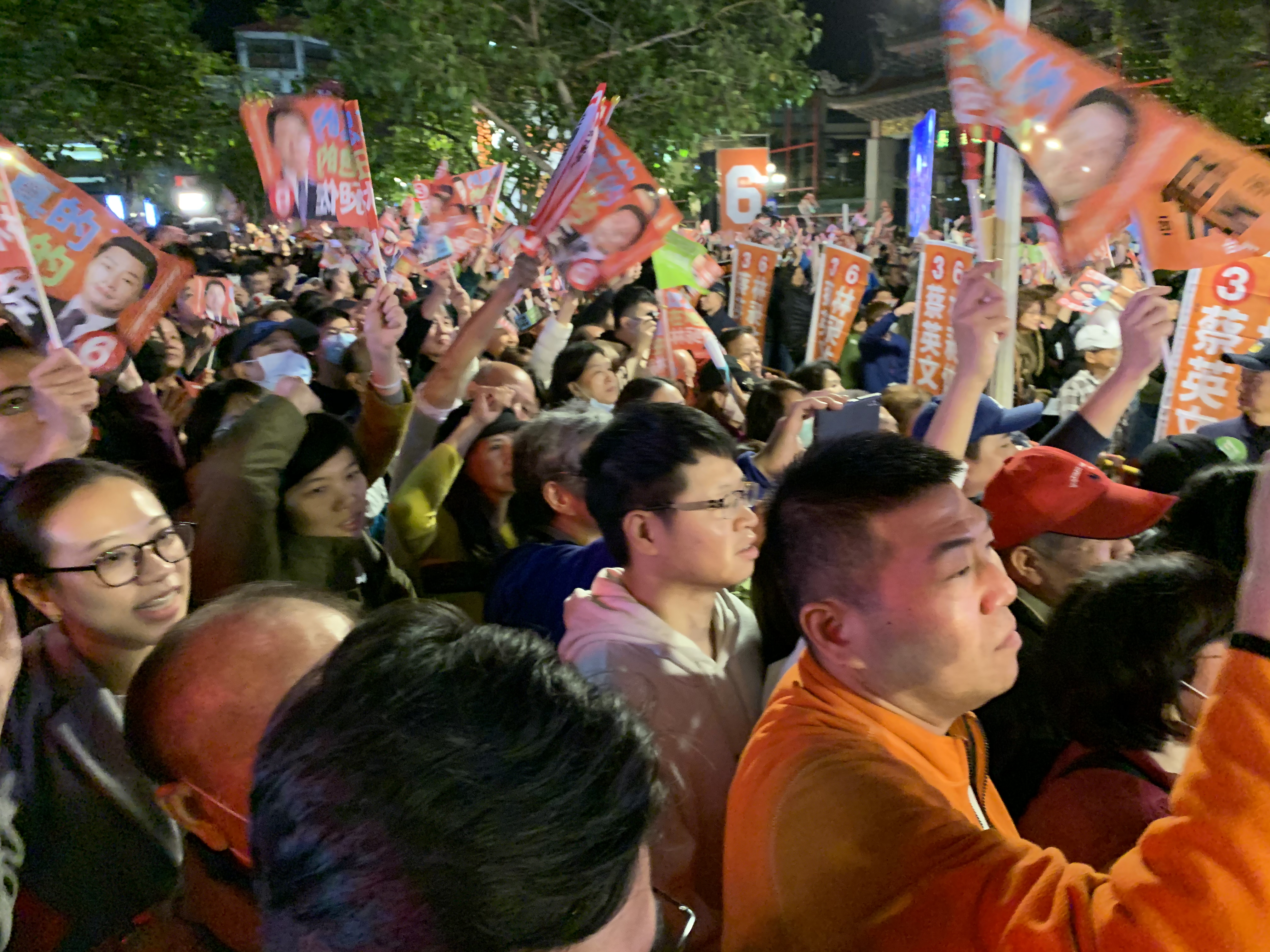 |
| It was extremely crowded, a good turnout for a legislative candidate |
The turnout was good - all seats were taken, plus a large standing crowd along the entire perimeter. Freddy goods - stickers, towels, keychains, t-shirts - sold at a good clip. Crucially, the turnout wasn’t just young people. In fact, I was in a sea of middle-aged and older folks who were all enthusiastic. That’s good news for Freddy, who needs this ‘older’ vote to keep Wanhua. These are the folks Lin Yu-fang could depend on, so it’s good to see that Freddy is netting at least some of them. Hopefully enough to win. The rally took up the entire length of Guangzhou Road outside the temple and towards the market at the far end, spilling onto the esplanade leading to the underground market entrance. I was hungry and thirsty, but there was absolutely no way to get to the Family Mart opposite.
Speakers included legislative candidate Lai Ping-yu (known for her cosplay-inspired campaign), Premier Su Cheng-chang and his his signature raspy voice, DPP Deputy Secretary General and “guy in charge of mobilizing the youth” Lin Fei-fan, former Kaohsiung governor (now Vice Premier, yes? His roles seem to keep changing) Chen Chi-mai, Freddy Lim himself, and of course President Tsai. One of the musicians, who was very young, also spoke but I missed most of this as I was chatting with another young attendee. All of the folks who’ve been making the rounds speaking - Tsai, Lim, Lin - sounded a little hoarse. It’s been a long season.
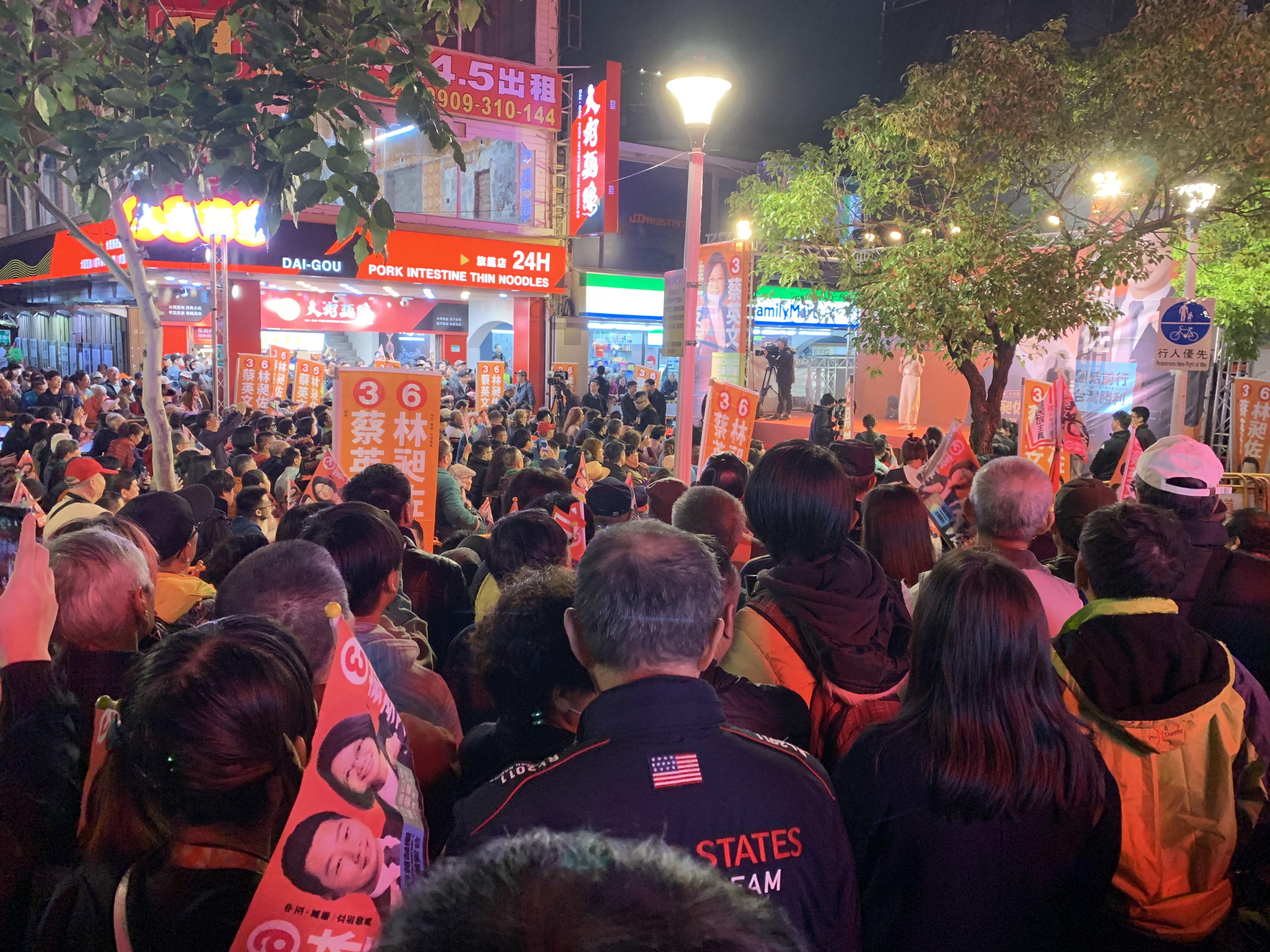 |
| Really, I couldn't even get to the Family Mart |
The speeches themselves were better than one might expect. Lin Fei-fan is known for being a good speaker, and he broke out his Taiwanese more than he has in the past (it is one of his native languages but you don’t hear it from him that often, he’s more likely to do public speaking in Mandarin). The gist of his speech - the Mandarin parts I could follow - were that Taiwan and Hong Kong are concurrently locked in a battle against China, and we are not going to let Taiwan become the next Hong Kong. “We don’t yield, we don’t kneel, we don’t walk on our knees,” he said, and I thought that was just great.
 |
| Outside Longshan Temple |
Towards the end he addressed some of the criticisms he’s received taking a position in the DPP, seeing as he’s so well-known for criticizing them. He said, “we know we haven’t done enough, we know we haven’t gone far enough, but we will, please give us a chance to do so” (not an exact translation).
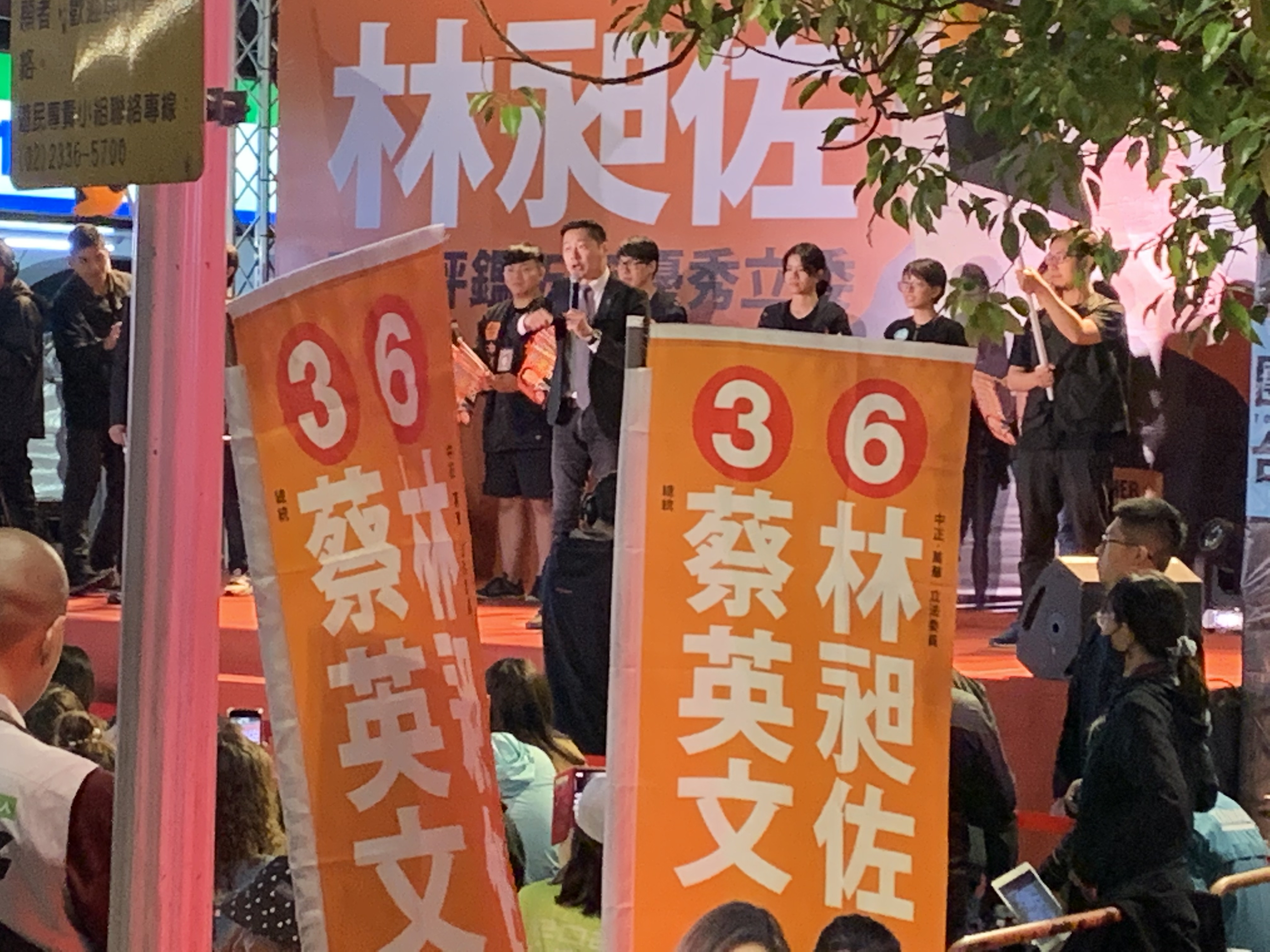 |
| Freddy's speech |
Typically, “we’re not good enough, we know that and we’ll do better” is not a great campaign tactic, but there’s something very old-school Taiwanese politics (that whole humility game, though it’s often performative) about it, and he’s the right person to deliver that message considering the criticism he’s endured.
To be honest, I couldn’t follow a lot of the other mostly-Taiwanese speeches, though I think Freddy’s focused a bit more on local issues than he typically has. Tsai’s (in Mandarin) was pretty clear: One Country Two Systems will never work, Taiwan can never give up its sovereignty, the China threat is real, etc. etc. She did better than usual, speaking with more clarity and emotion and less detachedness, wonkishness and repetitive call-and-response. This was a somewhat enjoyable speech, far more so than the one she gave on Ketagalan at the previous Freddy rally.
In fact, people seemed genuinely excited to see her, and genuinely energized by her speech. That's a win.
In fact, people seemed genuinely excited to see her, and genuinely energized by her speech. That's a win.
I think the size of the Han rally gave the speakers renewed passion, and pushed them to speak with energy and emotion (well, except Chen Chi-mai, who always sounds a little removed and dorky, but honestly, I like him.) I wouldn’t call it nervousness, but everyone’s on edge as voting begins in a matter of hours. It felt like a final push, because it was one.
Notably, after the rally ended, a group of Hong Kong protesters raised flags and shouted “Freedom for Hong Kong, Revolution of Our Times” in Cantonese, attracting a sizeable crowd. Someone from the Statebuilding Party also waited for the rally to end to take out a microphone as volunteers lifted large posters and gave out tissues and stickers. He delivered an impassioned speech, and while Statebuilding is a little too close to nationalist for my taste, I appreciated their very grassroots, take-to-the-street strategy. In fact, that Hong Kongers and the Statebuilding Party felt this was a good rally to make an appearance made the whole thing feel very democratic.
After all, all of these issues are connected - Hong Kong, Taiwan, what kind of country we want Taiwan to be - and the official speeches mirrored that.







